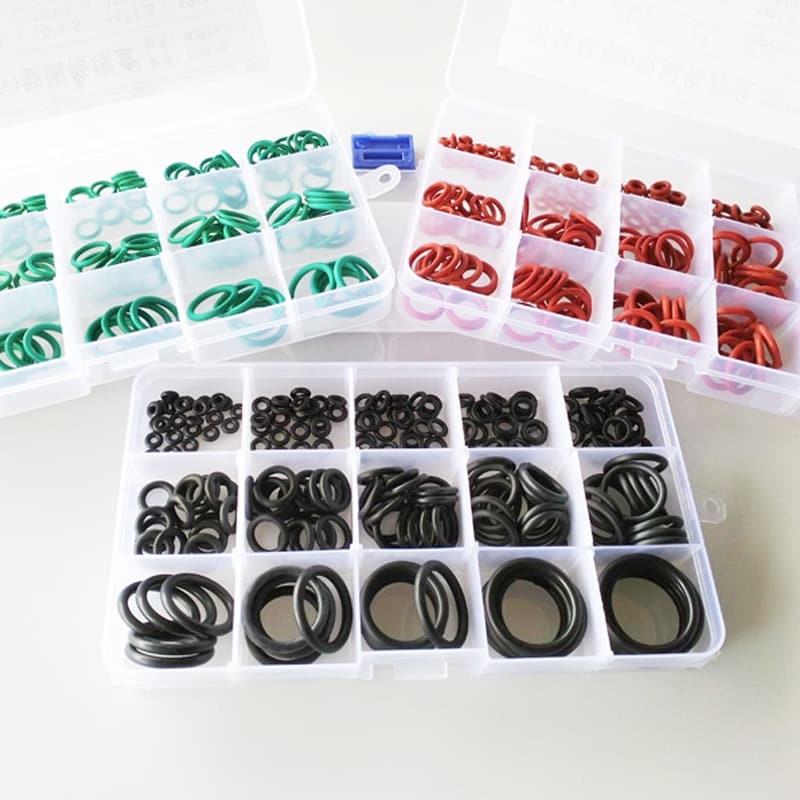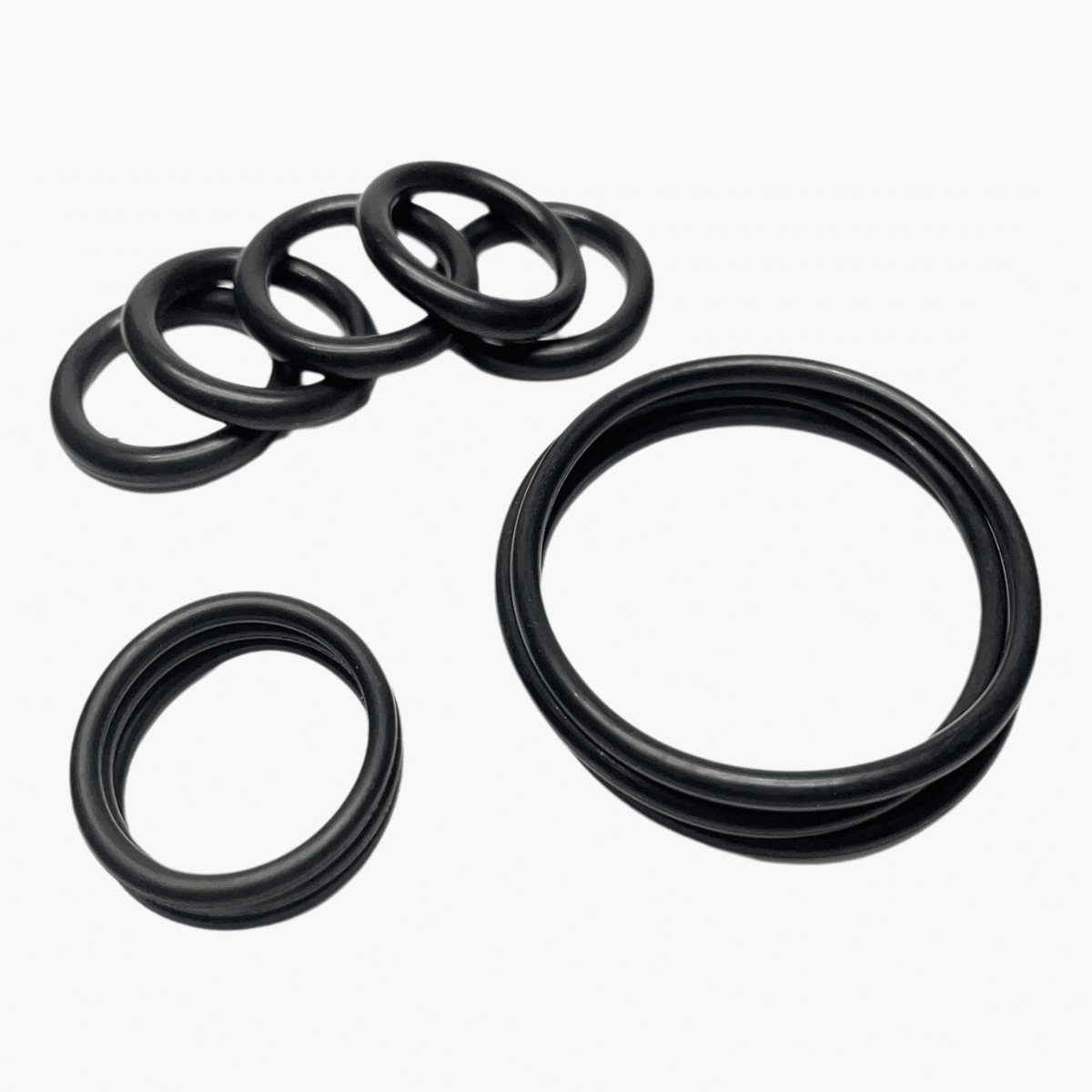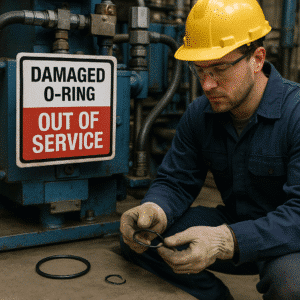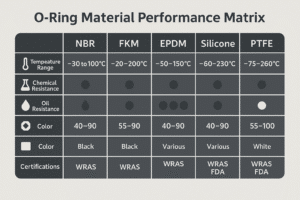I once struggled with seal failure in oily machinery — then I discovered Buna O-rings, and things changed.
These affordable and reliable seals resist oils, fuels, and water. But how do you know which Buna ring to choose for your system?
Let’s explore everything from material benefits to size selection, common uses, and how Buna compares to Viton and NBR.
What makes Buna O-rings ideal for industrial sealing?
Buna O-rings are made from NBR (nitrile rubber), known for its resistance to oils, greases, and hydrocarbons.
These seals offer excellent performance in automotive, hydraulic, and fuel systems — without the cost of exotic materials.

| 財産 | Buna (NBR) Performance |
|---|---|
| 温度範囲 | -40°C to 121°C |
| Oil resistance | High — ideal for petroleum-based fluids |
| Abrasion strength | Strong for dynamic sealing applications |
| Cost-efficiency | Very affordable vs Viton or FFKM |
Want a size guide? Explore our full Metric Buna O-Rings chart to find your fit.
What’s the difference between Buna and Viton O-rings?
Buna works great for most petroleum applications, but バイトン is better for aggressive chemicals and high heat.
Here’s a quick comparison:
| 特徴 | Buna (NBR) | バイトン(FKM) |
|---|---|---|
| Temp. range | -40°C to 121°C | -26°C to 204°C |
| Oil resistance | 高い | 素晴らしい |
| 化学薬品 | 適度 | Superior (solvents, acids) |
| 料金 | より低い | より高い |
Read our full comparison: ブナとニトリルのOリング
Where are Buna O-rings commonly used?
I’ve seen Buna O-rings used across dozens of industries. Here’s where they shine:
- 自動車: engines, fuel systems, gearboxes
- 油圧: cylinders, valves, pump housings
- 石油・ガス: pipeline seals, fluid control systems
- 食品・飲料: FDA-grade NBR for hygienic use
- General Industrial: compressors, pneumatic tools, HVAC

A client in the oilfield services sector once told me they cut seal failures by 50% after switching to Buna in place of generic rubber.
How do I select the right Buna O-ring?
Choose based on three criteria: application environment, size standard、 そして material match.
- 使用 AS568 size chart for inch-based systems
- 使用 metric size standards for European/Asian equipment
- Always confirm temperature and fluid compatibility
| 要素 | おすすめ |
|---|---|
| Temp. Range | Use within -40°C to 121°C |
| Fluid Exposure | Avoid strong acids or brake fluids |
| Durometer | Use 70–90 Shore A for hydraulic applications |
Still not sure? Hengoseal offers custom Buna O-rings for special needs.
Can Buna O-rings handle pressure and dynamic motion?
Yes — especially when properly sized and seated.
Buna’s abrasion resistance makes it suitable for pistons, valves, and pump shafts. But make sure:
- You match durometer to pressure load
- You use proper groove design to prevent extrusion
- You inspect regularly for hardening or cracking
💡 Tip: Need extreme pressure sealing? Consider our high-pressure NBR O-ring range.
結論
Buna O-rings are a proven, cost-effective sealing solution for oil, fuel, and industrial systems.
Choose the right size and material, and your seals will perform under pressure — literally.
Get reliable Buna O-rings for your equipment
📩 邮箱:[email protected]
📞 WhatsApp:+86 17622979498
Related topic
- Buna vs. NBR O-Rings: Which One’s Right?
- ニトリルゴムOリングガイド
- Metric Buna O-Ring Size Guide
- Rubber O-Ring Kit for Industrial Use
- FKM vs NBR: Oil Seal Material Comparison
よくある質問
1. Can Buna O-rings be used in fuel systems?Yes, they resist petroleum-based fluids and work well in automotive engines.2. Are Buna O-rings food safe?FDA-grade NBR is available for hygienic applications in food and beverage processing.3. What’s the shelf life of a Buna O-ring?5–10 years when stored in cool, dry, and dark environments.4. Do Buna O-rings work under high pressure?Yes, depending on durometer hardness and groove design.5. Are they suitable for high-temperature steam?No — use EPDM Oリング for steam exposure.6. Can I use them in brake systems?Not with DOT brake fluid — choose EPDM instead.7. What if I need non-standard sizes?私たちは提供する custom Buna O-ring production.8. How do I measure for the right Buna O-ring?Use ID (inner diameter) and CS (cross-section), or refer to AS568 standard chart.



